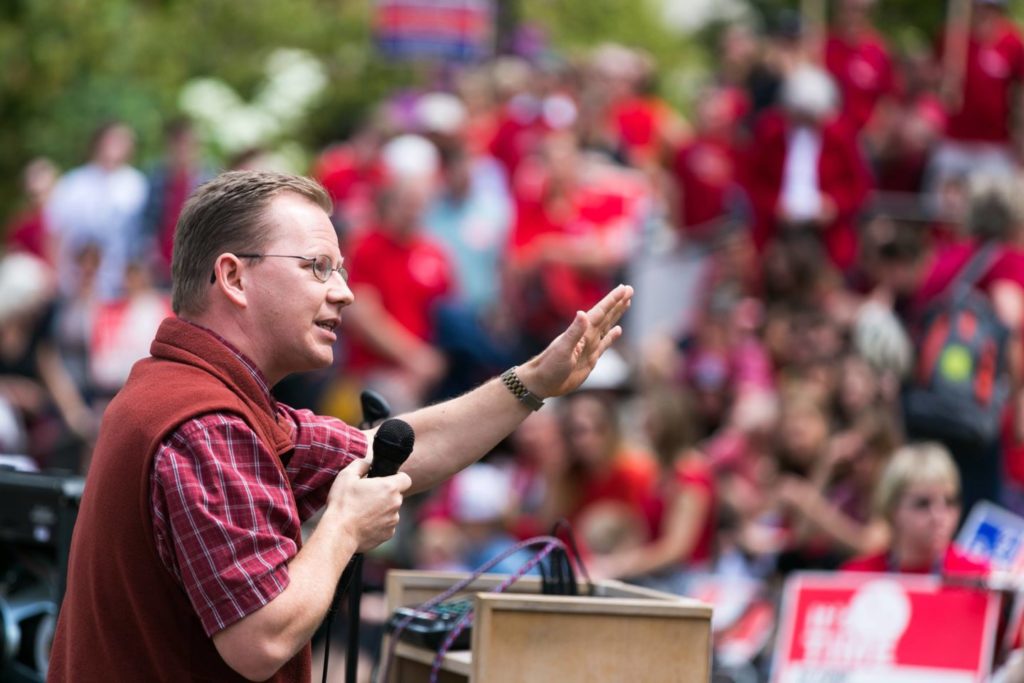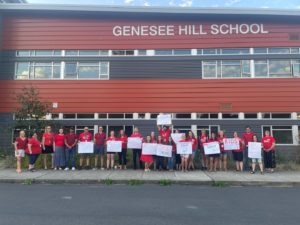Washington state schools superintendent wants billions for teacher retention, recruitment
(The Center Square) – Washington state’s Office of Superintendent of Public Instruction will ask the state Legislature for $3.15 billion for the 2023-25 biennium and $3.7 billion for the 2025-27…

(The Center Square) – Washington state’s Office of Superintendent of Public Instruction will ask the state Legislature for $3.15 billion for the 2023-25 biennium and $3.7 billion for the 2025-27 biennium as part of a budget proposal to support the state’s educators and reduce turnover.
For the current biennial budget, the Legislature required OSPI to convene a K-12 Basic Education Compensation Advisory Committee to develop recommendations to OSPI that support recruiting and retaining a diverse educator workforce.
“Today really focuses on the compensation necessary to retain excellent educators,” Superintendent Chris Reykdal said during a Thursday morning press conference outlining his office’s ask of next year’s Legislature. “This proposal today makes an explicit attempt to tell the Legislature now is the time to invest more in educators, not less even as we face difficult economic times.”
September’s annual U.S. inflation rate hit 8.2% year over year, with the high cost of food, gas, and energy on the minds of many Washingtonians.
Reykdal explained his rationale for his office’s ask of the Legislature.
“If they will invest in the basics and continue to invest in our educators, it will free up local levy dollars for our districts to use those funds to keep locally-funded educators on pace with their peers that are funded by the state,” he said.
OSPI’s proposal includes a one-time $10,000 hiring bonus to special education teachers, a one-time $5,000 hiring bonus to instructional and administrative staff at eligible high-poverty schools, and annual bonuses for qualified teachers and paraeducators working in dual language programs.
In an attempt to fund neighboring school districts more equitably, OSPI’s proposal would provide a 6% increase to base salaries for all school employees and lower the maximum regionalization factor from 18% to 12% and assign said factors by county, instead of school district.
Regionalization factors, used by the Legislature to fund schools, are a percentage increase in state funding, with school districts’ eligibility based on home values in the community.
Because regionalization factors are assigned by individual school district, many areas see significant differences in state funding between neighboring school districts.
That translates into school districts with lower regionalization factors struggling to hire and retain employees because a neighboring district can offer higher salaries, resulting in school districts with lower regionalization factors also seeing higher turnover rates.
Finally, OSPI’s proposal would make a change to the 4% increase in school funding the Legislature provides via an “experience factor” – that is, educators who have above average years of experience and advanced degrees.
OSPI’s proposal would expand eligibility for the experience factor to districts whose educators have more experience or have more advanced degrees, instead of both.
“But these bonuses we’re talking about, the investment in high-poverty communities, the ability to retain these educators when we get them, this is the next wave of excellence in our state,” Reykdal said.
Washington is not the only state dealing with the increased demand for teachers even as the COVID-19 pandemic has made teacher shortages worse and increased the competition to recruit teachers.
On Aug. 31, U.S. Secretary of Labor Martin Walsh and U.S. Secretary of Education Miguel Cardona sent a joint letter to education and workforce leaders outlining three recommendations to address the dearth of educators: establishing high quality paid apprenticeship programs, increasing partnerships between workforce and education systems, and paying teachers a livable and competitive wage.



